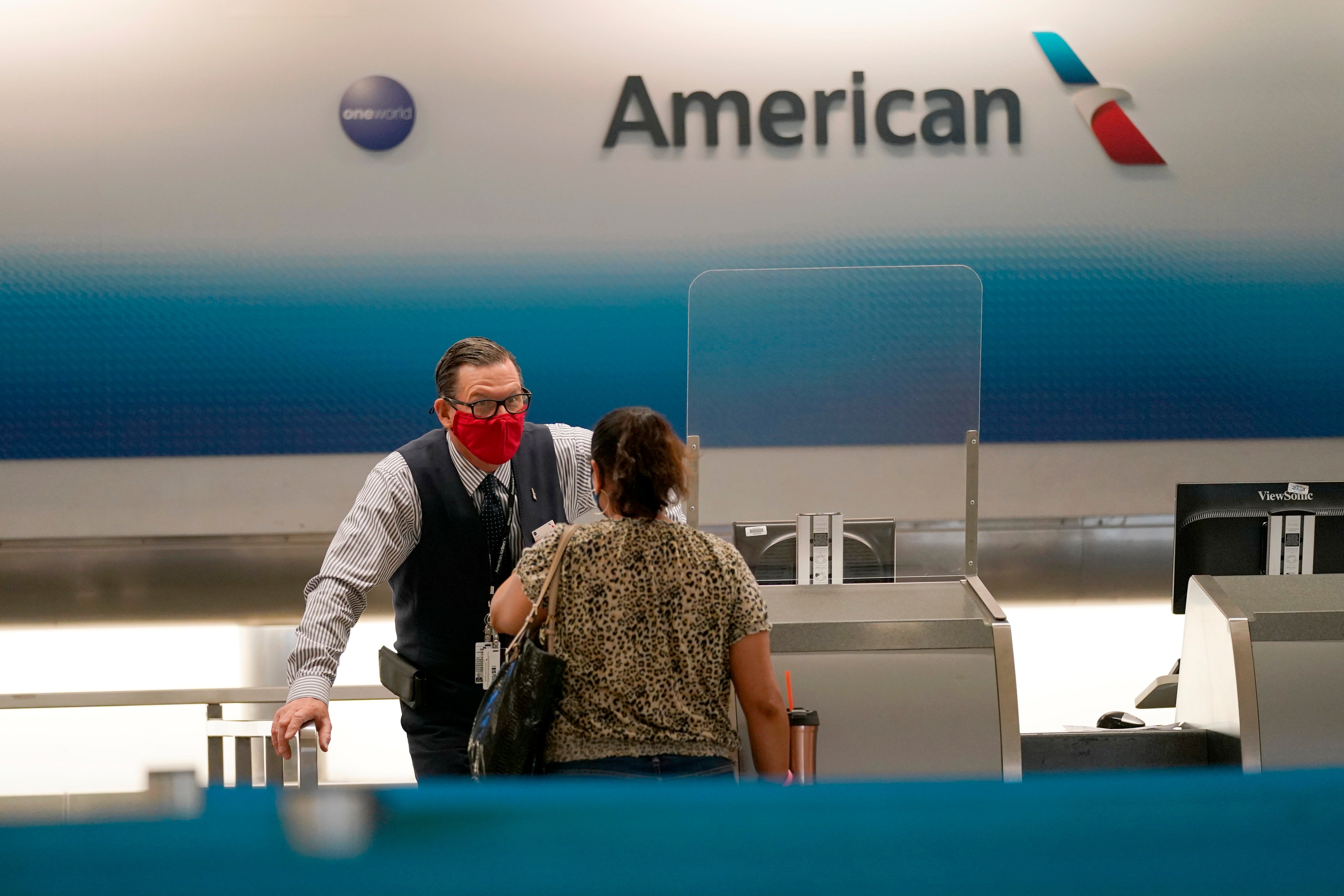Clock running out before some airlines begin furloughs
With the clock ticking, airline employees and executives are making a last-ditch appeal to Washington for more federal aid that would avert thousands of layoffs that otherwise will start on Thursday

Your support helps us to tell the story
From reproductive rights to climate change to Big Tech, The Independent is on the ground when the story is developing. Whether it's investigating the financials of Elon Musk's pro-Trump PAC or producing our latest documentary, 'The A Word', which shines a light on the American women fighting for reproductive rights, we know how important it is to parse out the facts from the messaging.
At such a critical moment in US history, we need reporters on the ground. Your donation allows us to keep sending journalists to speak to both sides of the story.
The Independent is trusted by Americans across the entire political spectrum. And unlike many other quality news outlets, we choose not to lock Americans out of our reporting and analysis with paywalls. We believe quality journalism should be available to everyone, paid for by those who can afford it.
Your support makes all the difference.Airline employees and executives made 11th-hour appeals Wednesday for Congress to approve billions more in federal aid to avert thousands of layoffs that are scheduled to start Thursday.
U.S. passenger airlines and their labor unions are lobbying for another $25 billion in taxpayer money to pay workers for six more months, though next March. Their request is tied up in stalled negotiations over a larger pandemic-relief measure.
Industry officials acknowledged that prospects were bleak for action before Thursday’s deadline. They said, however, they were cheered that the House this week included airline payroll help in a $2.2 trillion relief plan that moved closer to Republicans' preference for a lower price tag.
“It provides a glimmer of hope that something will get done,” said Nicholas Calio, president of the trade group Airlines for America.
Treasury Secretary Steven Mnuchin said Wednesday that the administration wants to help hotels, airlines and schools. He said he was talking with House Speaker Nancy Pelosi but hinted that the White House doesn't want to go above about $1.5 trillion — $700 million below the House Democrats' figure.
“I don't think we're going to make significant progress" until Thursday, he said on Fox Business.
Calio suggested that Thursday might not be a hard deadline — airlines could reverse some furloughs if a deal between the White House and congressional Democrats appeared imminent.
“Ideally, if it’s going to go beyond Thursday they will be close to a deal and say, ‘Hang on for a couple days,’ and we can wait,” he said. “Beyond that, the notices have gone and furloughs will go into effect.”
Sara Nelson, president of the Association of Flight Attendants, said she still expects action by Congress because majorities in the House and Senate have signaled support for more airline relief. She said a bailout that keeps airline workers employed would be cheaper for the government than putting them on the unemployment line during a pandemic.
“These are people who are not going to be able to pay their rent, they are not going to be able to take care of themselves," Nelson said on CNBC.
American Airlines is expected to furlough about 19,000 workers, United says it will cut nearly 12,000, and several thousand more employees at smaller carriers have received layoff warnings. Delta and Southwest have shed thousands of jobs through voluntary departures but don’t plan to lay off workers immediately.
Airlines have persuaded tens of thousands of employees to take early retirement or severance deals. But even after those offers, the airlines have more pilots, flight attendants, mechanics and other workers than they need.
Critics say airlines shouldn't get special treatment, and that subsidizing their workforces will only delay the companies' need to adjust to the downturn in travel — which even airline trade groups think will last three or four years.
“The airlines are always the first ones begging for support. They get bailed out over and over again," Veronique de Rugy, a research fellow at George Mason University and columnist for a libertarian magazine, said in a recent interview. “Airlines have a history of not preparing properly for the next emergency because they know they are going to be bailed out.”
In March, Congress approved $25 billion mostly in grants to cover passenger airline payrolls through September and up to another $25 billion in loans that the airlines could use for other purposes. Late Tuesday, the Treasury Department said it completed loans to seven major airlines: American, United, Alaska, JetBlue, Frontier, Hawaiian and SkyWest.
American now expects to borrow $5.5 billion from the Treasury, and United can get $5.17 billion. Airlines have also borrowed billions from private lenders. They could use that money to keep employees — as critics like de Rugy suggest they should — but they are trying to cut spending in case ticket revenue remains severely depressed for a long time.
U.S. air travel remains down nearly 70% from a year ago. Signs of a modest recovery faded this summer when COVID-19 cases spiked in many states. Traditionally lucrative business and international travel are even weaker than domestic leisure flying.